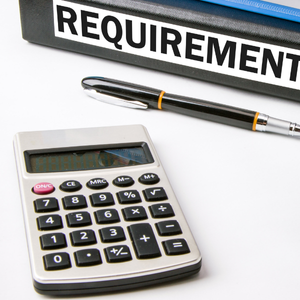
The tax implications of selling a Chicago home are important, among other factors. From capital gains tax to exemptions, these complexities can affect your finances. Knowing tax implications can help you plan and avoid surprises when selling a longtime home or investment property. This guide helps homeowners make informed decisions and maximize returns by providing clear insights and practical advice on managing home sale taxes. For personalized and expert guidance, Illinois Real Estate Buyers can help.
Brief Overview
Maximizing your Chicago, IL home sale profit requires understanding the tax implications. Capital gains taxes and gains exclusions can significantly affect your net proceeds under federal and state tax codes. For compliance and financial optimization, Illinois residents must consider unique tax requirements and local property transfer taxes. Strategic tax planning with professional advice or guidance from cash home buyers in Chicago and nearby cities can help you sell your home smoothly and profitably while minimizing unexpected liabilities. Considering these factors will help you make smart financial decisions.
Key Highlights
➤ Understanding tax implications is vital for maximizing returns from Illinois home sales.
➤ Federal and Illinois tax codes both influence capital gains during property transactions.
➤ Homeowners can exclude up to $500,000 of gains if conditions are met.
➤ Accurate documentation of improvements can lower taxable gains effectively.
➤ Professional tax advice enhances compliance and optimizes financial benefits.
Understanding Tax Implications for an Illinois Home Sale
Illinois tax laws can affect the financial outcome of selling a home in Chicago or elsewhere. The Illinois capital gains home sale tax is crucial. Real property taxation is complicated, and sellers must distinguish between state and federal taxes. Understanding these factors simplifies property transfer tax planning, maximizing capital gains exclusions and meeting reporting requirements to avoid unexpected liabilities.
How State and Federal Taxes Differ
Know the difference between federal and Illinois state taxes when selling your home. Federal taxes emphasize capital gains and exclusions; Illinois emphasizes income treatment and transfer fees. Understanding both can help you plan, reduce taxes, and comply. You can maximize your savings and simplify the selling process by consulting an Illinois real estate tax professional.
| Category | Federal Taxes | Illinois State Taxes |
|---|---|---|
| Type of Tax | Capital gains tax on profit from the home sale | No separate capital gains tax; gains are treated as regular income |
| Exclusion Amounts | Up to $250,000 for single filers or $500,000 for married couples filing jointly | Generally follows federal exclusion limits |
| Residency Requirement | Must have lived in the home as a primary residence for at least 2 of the past 5 years | Follows the federal residency rule for exclusion eligibility |
| Tax Rates | Long-term capital gains rates of 0%, 15%, or 20%, depending on income | Taxed at the state’s flat income tax rate (currently 4.95%) |
| Depreciation Recapture | Applies if part of the home was used for business or rental purposes | May require separate reporting and adjustments to taxable income |
| Transfer Tax | Not applicable at the federal level | Real Property Transfer Tax applies to property ownership transfers based on sale price |
| Documentation Needed | Proof of purchase price, home improvements, and ownership period | Proof of expenses, property improvements, and applicable transfer payments |
| Tax Filing | Report gains and exclusions on IRS Schedule D and Form 8949 | Include gains on Illinois Form IL-1040, with state-specific adjustments |
| Professional Guidance | Recommended for optimizing exclusions and verifying IRS compliance | Real Property Transfer Tax applies to property ownership transfers based on the sale price |
Federal Capital Gains Tax Overview
Understand the federal capital gains tax to maximize your home sale profits. Your real estate profit is taxed by this tax. The rules are complicated, but understanding eligibility and exclusions can lower your tax bill. Home sellers must consider how capital gains tax affects their tax return and how it differs from Illinois legislation. Sellers can maximize post-sale financial results through tax planning and gain exclusions.
When Federal Capital Gains Tax Applies

When you sell a property for more than its purchase price plus expenses, federal capital gains tax applies. The IRS demands taxable profit reporting. Income, filing status, and property age determine tax rates. Long-term capital gains rates of 0%, 15%, or 20% on homes older than a year can dramatically reduce your tax burden.
Exclusions may reduce or eliminate homeowners’ tax liability. If the home was your primary residence for at least two of the last five years, you can exclude up to $250,000 in gains if single or $500,000 if married filing jointly. Using part of the property for rental or business may reduce this benefit due to depreciation recapture rules. Keep records of ownership, occupancy, and house renovations to confirm eligibility.
Agent commissions and closing costs might raise your home’s adjusted basis, minimizing taxable gains. Consult a tax professional to ensure compliance and prepare properly, as federal and Illinois tax regulations differ. Know when the federal capital gains tax applies to prepare for home sales and avoid surprises.
Information on Illinois Gain Tax
Financial preparation for Illinois homeowners requires knowledge of capital gains tax implications when selling a home. Illinois’s gain tax requirements make tax code navigation difficult. Federal and Illinois capital gains require sellers to be well-informed to optimize tax planning. Specific capital gains tax provisions and how to navigate the Illinois tax code will help sellers maximize profits while complying with state and federal laws. Partnering with investor home buyers in Illinois and nearby cities can also help simplify the selling process and improve financial outcomes.
Specific Gain Tax Requirements in Illinois

Income from home sales in Illinois is taxed as income, not capital gains. The difference between the sale price and the property cost basis, including improvements and realtor fees, is taxed at the state’s standard income tax rate. Tax planning requires this knowledge.
According to federal gain exclusions, Illinois homeowners can exclude up to $250,000 or $500,000 for married couples filing jointly if the home was their primary residence for at least two of the last five years. Because improvements and other expenses can affect your taxable gain and state and federal returns, you must keep detailed records. A state real property transfer tax on the sale price reduces proceeds.
To reduce immediate tax liability, homeowners can use installment sales to spread taxable gains over multiple years. A combination of careful documentation, exclusion knowledge, and professional tax guidance ensures Illinois tax compliance and financial optimization. Use a qualified tax advisor to navigate these rules and protect your returns.
Maximizing Gains Exclusion Benefits
Illinois home sellers must understand federal and state tax codes to maximize gains exclusion benefits and reduce capital gains taxes. Taxable income can be significantly reduced by the gains exclusion, but IRS requirements must be met. Selling a primary residence correctly can save federal and state taxes. By qualifying for the maximum gains exclusion, homeowners can maximize financial returns, reduce tax liabilities, and meet regulatory requirements. Knowledge and strategy are needed to maximize these benefits.
| Eligibility Criteria | Documentation Required | Potential Impacts |
|---|---|---|
| Ownership Duration: Owned home for at least 2 of the last 5 years | Tax benefits are focused on the primary residence and are not applicable if the property is a rental | Exclusion could apply to gains up to $250,000 ($500,000 for married couples filing jointly) |
| Primary Residence: Lived in the home as primary residence for 2 out of the last 5 years | Tax benefits are focused on the primary residence and not applicable if the property is a rental | Utility bills, driver’s license, and voter registration showing the address |
| No Sale Exclusions in Last 2 Years: Did not claim the exclusion on another home sale in the last 2 years | Prior home sale records for confirmation | Ensures fair application of exclusion without double benefits |
| Special Circumstances: Exceptions for unforeseen events like job relocation or health issues | Supporting documents such as medical records or employer letter | Partial exclusion may be granted, allowing some gains to be excluded |
This table highlights the critical steps and considerations for homeowners aiming to maximize their financial returns through gains exclusion benefits.
Qualifying for the Maximum Gains Exclusion

IRS requirements must be met to sell your home with the maximum gains exclusion. Individual filers can exclude $250,000 of capital gains, and married couples $500,000. You must have lived there for two of the five years before selling. This period ensures federal capital gains compliance and affects taxable income.
Residency is essential. You don’t have to live in the home for two years, but you must occupy it for five. You need utility bills, tax returns, and voter registration to prove your claim. The exclusion can only be claimed every two years, and depreciation recapture rules may reduce it for business or rental use.
Documenting home improvements elevates your property’s basis, reducing taxable gains. Remodels, roof replacements, and room additions reduce capital gains. An experienced real estate tax advisor ensures compliance with federal and Illinois laws and maximizes the gains exclusion for a profitable home sale.
Preparing Your Residence for a Real Estate Sale
Illinois home sellers, especially in busy Chicago, must prepare beyond just cleaning. Tax implications affect the financial outcome of your real estate sale, so understanding them is crucial. Preparing your home for sale involves several crucial steps, including capital gains tax considerations and federal and state tax planning. Understanding how capital gains affect your tax return or using gains exclusion benefits maximizes financial gains while complying with Illinois and federal laws.
Achieving a Smooth Home Sale
Illinois real estate sales require careful tax planning. Knowing how capital gains tax affects your finances is crucial. Establishing your property’s cost basis, including purchase price and documented improvements, can lower taxable gains and taxes. Early tax planning maximizes net proceeds.
Find out if you qualify for the federal home sale exclusion, which exempts up to $250,000 or $500,000 for married couples if the property was your primary residence for at least two of the last five years. Keep utility bills and proof of residency to verify your claim and maximize tax relief. Acknowledging how Illinois taxes capital gains as ordinary income and the real property transfer tax simplifies finances.
To reduce immediate tax liabilities, consider installment sales to spread taxable gains over multiple years. When combined with financial planning, staging, repairs, and decluttering can increase a home’s value and appeal. Your Illinois home sale proceeds smoothly and maximizes value with an effective tax strategy and expert property presentation.
Building on the strategies discussed earlier to enhance your home’s appeal, consider these additional steps to maximize your home’s selling price in Illinois:
➤ Enhance curb appeal with fresh paint and manicured landscaping to make a strong first impression.
➤ Stage key rooms to highlight functionality and lifestyle benefits, appealing to a broader range of buyers.
➤ Invest in minor renovations, like updating fixtures or applying a fresh coat of neutral paint, for modern allure.
➤ Leverage online marketing by utilizing professional photos and virtual tours for greater reach.
➤ Set a competitive yet realistic listing price based on recent local market analyses and trends.
➤ Choose an experienced real estate agent familiar with Illinois markets to navigate negotiations effectively.
➤ Pre-inspect your home to identify and address potential issues, reassuring potential buyers.
By implementing these strategies, you’ll position your home as a highly attractive option in the competitive Illinois market, ensuring optimal returns on your investment.
Maximizing your Chicago, IL home sale profit requires understanding the tax implications. You can plan your home sale to improve your finances by researching capital gains tax exemptions, local property tax rules, and deductions. A real estate tax professional can streamline the process and ensure compliance, preventing missed liabilities. Whether you’re an experienced seller or new to the market, a proactive approach helps you sell with confidence and turn confusing tax topics into an advantage. Contact Illinois Real Estate Buyers today to make selling your home stress-free.
Selling your home? Illinois Real Estate Buyers helps you navigate tax implications, offers fair cash deals, and handles everything for a hassle-free sale. Call (773) 305-6373 today!
FAQs
What are the capital gains tax implications of selling a home in Chicago, IL?
The profit from selling real estate in Chicago must be understood as capital gains tax. Your income and property ownership history determine how much the federal government taxes these gains. Capital gains are taxed at Illinois’ standard rate.
How do homeowners maximize capital gains exclusions when selling?
If they lived in the home for at least two of the five years before selling, homeowners can exclude up to $250,000 of gains ($500,000 for married couples). Utility bills and tax returns must show residency during ownership to qualify.
Do home sellers in Illinois have special tax requirements?
Yes, Illinois has specific requirements, including the Illinois real property transfer tax. This tax affects your reported gains and must be calculated separately from federal requirements. It’s essential to adhere to local ordinances to avoid penalties.
Do transaction costs and improvements affect capital gains?
Yes, tracking improvements and transaction-related expenses like closing costs and agent fees is crucial. These expenses can be added to the property’s basis (original cost), effectively reducing the taxable gain upon sale.
What can Chicago home sellers gain from tax advice?
Tax professionals can simplify tax codes and improve financial outcomes. An advisor helps identify exemptions, ensures state and federal compliance, and strategizes tax planning to maximize gains exclusion.
